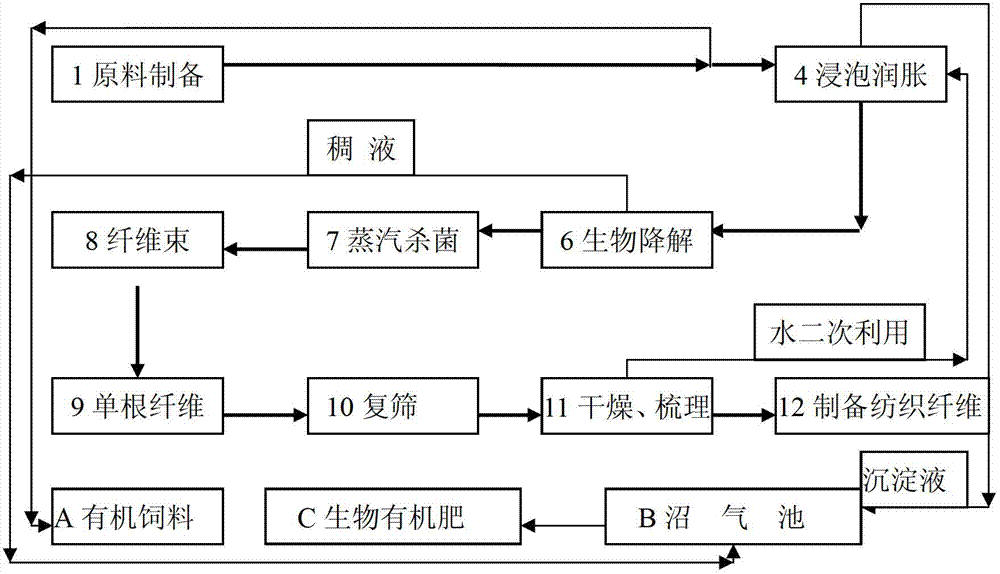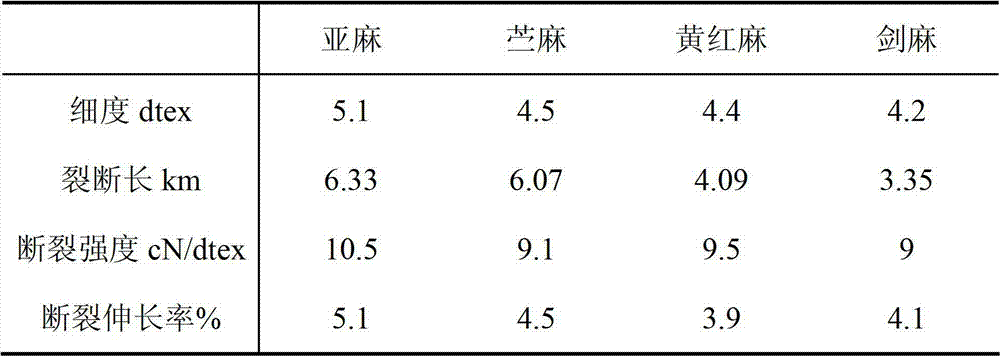Composite flora and textile fiber preparation method by using the same
A technology of compound bacteria and textile fibers, applied in the field of textile fibers, can solve the problems that chemical preparations cannot be separated from waste liquid, cannot achieve effective recycling, and organic matter cannot be reused, so as to save coal consumption and improve production efficiency. The effect of low cost, improving purity and yield
- Summary
- Abstract
- Description
- Claims
- Application Information
AI Technical Summary
Problems solved by technology
Method used
Image
Examples
Embodiment 1
[0026] Example 1 Configuration of bacterial liquid
[0027] The biological bacteria used in the present invention have been deposited at the General Microbiology Center of the China Microbial Culture Collection Management Committee (CGMCC, No. 3, No. 1, Beichen West Road, Chaoyang District, Beijing) on April 6, 2012, and it contains the deposit number CGMCC Rheinheimera tangshanensis (Rheinheimera tangshanensis) No.5972, Acinetobacter lwoffii (Acinetobacter lwoffii) with CGMCC No.5973, Pseudomonas fluorescens (Pseudomonas fluorescens) with CGMCC No.5974, Wickerhamomyces anomalus with the deposit number CGMCC No. 5975.
[0028] The above-mentioned composite bacterial group is configured into a composite bacterial aqueous solution according to the following mass ratio, which is the bacterial liquid:
[0029] Tangshan Rheinoniae: Acinetobacter ruckeri: Pseudomonas fluorescens: Wickerhamomycesanomalus is 1-2:1-2:1-2:2-3; the density of the formed bacterial solution is 6×10 7 More than...
Embodiment 2
[0030] Example 2 Preparation of fiber from flax
[0031] Using flax as the raw material, the preparation method of the fiber is explained in detail. The complex flora is configured according to the following mass ratio:
[0032] Tangshan Rheinoniae: Acinetobacter ruckeri: Pseudomonas fluorescens: Wickerhamomyces anomalus is 1:1:2:3.
[0033] Please refer to figure 1 , The process of fiber preparation method is divided into three stages: preparation stage, fiber section and by-product section.
[0034] (1) Preparation stage: 1, 4
[0035] Dip the harvested flax into a soaking bin or soaking tank for washing and cold soaking. First, wash away the surface soil and other debris on the raw material, and then soak at the same time. The water temperature is natural temperature, and the time is subject to soaking and swelling, 10-12 hour. After the turbidity of the liquid after multiple soaking, the supernatant can be used again after flocculation and precipitation. The sediment is fed int...
Embodiment 3
[0049] Example 3 Preparation of cellulose from ramie
[0050] The specific preparation process is the same as in Example 2. The difference is that the composite flora is configured according to the following mass ratio:
[0051] Tangshan Rheinoniae: Acinetobacter ruckeri: Pseudomonas fluorescens: Wickerhamomyces anomalus is 1:2:2:2; during biodegradation, the mass ratio of the decomposed raw material to the bacterial liquid is 1:7.
[0052] Please refer to Table 1 for the measurement results of physical properties of the obtained fibers.
PUM
 Login to View More
Login to View More Abstract
Description
Claims
Application Information
 Login to View More
Login to View More - R&D
- Intellectual Property
- Life Sciences
- Materials
- Tech Scout
- Unparalleled Data Quality
- Higher Quality Content
- 60% Fewer Hallucinations
Browse by: Latest US Patents, China's latest patents, Technical Efficacy Thesaurus, Application Domain, Technology Topic, Popular Technical Reports.
© 2025 PatSnap. All rights reserved.Legal|Privacy policy|Modern Slavery Act Transparency Statement|Sitemap|About US| Contact US: help@patsnap.com


